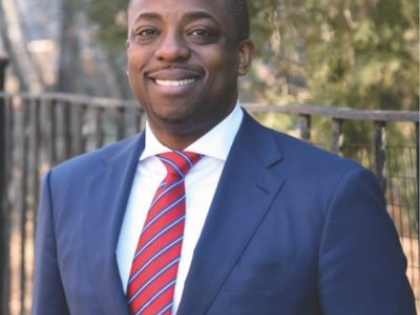
Bank of America cuts business ties with detention centers, private prisons

Bank of America will cease lending to detention centers and private prisons, making it one of the last big Wall Street bankers to cut ties with the industry as corporations wrestle with whether to cash in on President Trump’s immigration policies or create distance amid increasing public backlash.
“The private sector is attempting to respond to public policy and government needs and demands in the absence of long standing and widely recognized reforms needed in criminal justice and immigration policies,” Bank of America said in a statement to The Washington Post. “Lacking further legal and policy clarity, and in recognition of the concerns of our employees and stakeholders in the communities we serve, it is our intention to exit these relationships.”
Dropping private prison companies is a way for banks, already targets of Democratic presidential candidates, to get out of the crossfire on another emotional issue, industry analysts have said. JPMorgan Chase and Wells Fargo made similar moves earlier this year, and U.S. Bank told The Post in March that it, too, was pulling back.
Banks have been conducting a cost-benefit analysis on whether the relatively small fees drawn from the prison industry are worth the political headache and potential reputational hit, said Ed Mills, a Washington-based policy analyst with Raymond James. The calculus changed after Democrats took control of the House in 2018, elevating Rep. Maxine Waters (D-Calif.) to the chair of the powerful Financial Services Committee where progressive lightening rod, Rep. Alexandria Ocasio-Cortez (D-N.Y.), also serves, he said. No “big bank CEO wants to go in front of Congress and have to explain why their bank is financing something politically controversial,” Mills said. “The banking fee is not worth the risk.”
The moves also come as big banks post record profits and the Trump administration rolls back regulations put in place after the global financial crisis. In 2018, Bank of America reported profit of $28.1 billion — an all-time high and 56 percent higher than the $18 billion recorded the year before. Its chief executive, Brian Moynihan, made $26.5 million last year.
Though the announcement comes at a time of heightened tensions over the treatment of migrants in U.S. detention centers, with activists demanding more accountability from the companies that profit off them, Bank of America’s decision has been in the works for some time. Its representatives spent months consulting with civil rights leaders, criminal justice experts and academics, and toured prison and detention facilities before deciding it was in the bank’s best interest to end its relationships with these companies “as expeditiously as possible.”
Shares of private prison giants GEO Group and CoreCivic — to which Bank of America also served as a chief financier — saw their shares sink more than 4 percent after the lender’s announcement.
Last July, New York divested $10 million in state pension funds from the two companies.
Bank of America was also facing pressure from New York state officials. Earlier this month, the state Senate passed legislation to prohibit banks chartered in New York from financing private prisons.
The bill’s sponsor, state Sen. Brian Benjamin, a Democrat from Harlem, spoke with the bank’s CEO, Moynihan, after holding a rally in front of a bank branch in Harlem in May. “Divestment is the right choice, morally and financially, and you [Moynihan] should be proud of what you have done,” Benjaim said in a statement. “This is a major step forward in the fight to starve the engine of mass incarceration of capital.”
Reporting from the Miami Herald revealed in May that Bank of America was the chief financier of Caliburn, a private prison company that operates a detention center in Homestead, Fla., housing about 2,300 unaccompanied migrant children. The bank gave Caliburn a $380 million loan, according to U.S. Securities and Exchange Commission filings, as well as a $75 million revolving credit line. Presidential candidates Sens. Amy Klobuchar (D-Minn.) and Elizabeth Warren (D-Mass.) — who last week introduced a proposal to ban private prisons and detention facilities — both visited the Homestead center Wednesday, hours before the first Democratic debate.
During Bank of America’s annual shareholders meeting in April, company executives were confronted by activists about the bank’s “reputation to be a leading financier of private prisons.”
The company said at the time that it was studying the topic. “It is a highly emotional issue, and we respect that,” said Andrew D. Plepler, the bank’s global head of environmental, social and governance. “Ultimately policymakers are going to have to take on the criminal justice issue more broadly, as well as immigration reform.”
The corporate accountability committee of Families Belong Together, a coalition of organizations fighting the Trump administration’s family separation policies, applauded Bank of America’s decision in a statement Wednesday.
“Today’s announcement by Bank of America to stop lending to the private prison industry and immigrant detention companies is an enormous victory for the millions of people and more than 100 organizations who have raised their voices, signed petitions, and protested at bank branches across the country to demand an end to financing the morally bankrupt private prison industry,” the organization wrote, adding that it planned to increase pressure on other big banks like SunTrust to follow suit.
Moynihan is part of a lobbying group that expressed “serious concern” about how Trump’s immigration policies stirred employee anxiety and threatened to disrupt business operations, according to a letter the group, Business Roundtable, sent to the head of the Department of Homeland Security last summer.
Corporate profits off detention centers have been under scrutiny this week, with online furniture retailer Wayfair coming under fire after employees staged a walkout to protest the company’s sale of $200,000 in beds and other furniture to a Texas detention center.



